Partners
Technical University of Cluj-Napoca, Romania.
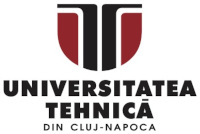
The Technical University of Cluj-Napoca, an “Advanced Research and Education University” as awarded with the Order of
the Ministry of National Education no 5262/September 5th 2011, is today a tertiary educational institution having both
tradition and national and international recognition. The Technical University of Cluj-Napoca comprises 12 faculties in the
two academic centres, Cluj-Napoca and Baia Mare, as well as in locations, such as Alba-Iulia, Bistrita, Satu Mare and
Zalau. The educational offer, aligned to the Bologna system, includes bachelor's, master's and doctoral programs, as well
as continuous training programs.
The university has 12 faculties, where more than 900 academic staff and more than 21,000 students carry out their activity.
The fields of study have a wide range, from engineering to architecture, fundamental sciences, sociohuman sciences and
arts. Also, within the Technical University, the Department for Continuing Education, Distance Learning and with Reduced
Frequency organizes and conducts continuous education activities and programs, postgraduate courses, continuous
professional development programs or courses or based on occupational standards.
The Technical University of Cluj-Napoca is concerned with the international exchange of scientific values, and this trend is
found in the over 400 inter-university collaboration agreements or in the large number of student mobilities. Opening up
towards the European and world space of education and research through a steady process of internationalization is one of
the major objectives of the university.
Research is, along with education, the main priority of the Technical University of Cluj-Napoca. In all faculties of the
university there are research structures, from collectives, groups and laboratories, to research centers and platforms. The
performance anchored in the socio-economic environment, the international visibility and cooperation as well as the
scientific novelty and interdisciplinarity are some of the characteristics of the research environment of the Technical
University of Cluj-Napoca. Open research directions are oriented towards global priorities and perspectives: from the
Information and communications technology to Renewable Energy and Ecology; from superconductivity, spintronics and
nanomaterials, to management and robotics; from mechatronics and electrical engineering, to the automobile and the home
of the future, or to urbanism and society. The Technical University of Cluj- Napoca, one of the 12 universities of “advanced
research and education" in Romania, aims at engaging itself in producing outstanding scientific results and approaching
interdisciplinary and multidisciplinary subjects. Furthermore, it strives to integrate the research results in the exchange of
national and international values, to increase its national and international visibility, and also attract and create highly skilled
human resources.
Achieving these goals must strengthen its already established position as a university of "advanced research and
education", and the recognition of the Technical University of Cluj- Napoca as a center of excellence in scientific research
with a high impact on the social and economic environment. Scientific research, by its creative nature, represents one of the
most important methods both in teacher or researcher training and in educating university students in the spirit of innovation,
irrespective of study level. In the Technical University of Cluj-Napoca basic and applied research, as well as innovation are
promoted. The research topics cover the fields of engineering, science, and humanities. Research is conducted at
department level, predominantly in over 70 accredited research structures. The new research strategy aims at creating selfsustainable
interdisciplinary and multidisciplinary structures capable of outstanding scientific achievements, integrated
within a multidisciplinary research institute.
University of Nis, Serbia.
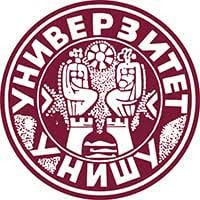
The University of Niš was founded in 1965 as a state HE institution. It is a medium-sized, mature and well developed
academic community, comprising 14 faculties: Faculty of Civil Engineering and Architecture, Faculty of Economics, Faculty
of Electronic Engineering, Faculty of Arts, Faculty of Law, Faculty of Mechanical Engineering, Faculty of Medicine, Faculty
of Occupational Safety, Faculty of Philosophy, Faculty of Physical Culture, Faculty of Science and Mathematics, Faculty of
Technology and Faculty of Education. The fourteenth - Faculty of Agriculture has recently been founded and it is expected to
enroll the first generation of students in the academic year 2018/2019. Most of those faculties have composite structure, i.e.
various departments, divisions or majors, offering wide and diversified study and research opportunities at both
undergraduate and graduate level, including opportunities to obtain a PhD degree.
The University of Niš presently has 24669 students at all levels of studies, 1723 teaching staff, and 686 administrative and
support staff. The University of Niš presently has 24669 students at all levels of studies, 1723 teaching staff, and 686
administrative and support staff.
UNI has significant experience in international programs such as Tempus, Erasmus, FP6 and FP7. Within the EM ECW
program, the University of Niš entered the exchange of students and teaching staff in 2008 as a partner in the Project
BASILEUS. In 2011, UNI became a consortium member of the Project EM2STEM. University of Niš also became partner of
other Erasmus Mundus programmes, such as SIGMA, ERAWEB, EUROWEB, GREEN-TECH. Currently, the University is
involved in the following programs: ERASMUS+, CEEPUS and HORIZON 2020. One of the leading principles of the
University of Niš is to become part of the European higher education area and to adjust its plans and programs against this
aim, in the context of the reform of the higher education system within the EU academic programs and other programs.
The University of Niš, with its many faculties and research institutes and centers for education and lifelong learning, has a
diverse body of competent researchers and experienced practitioners in the different fields, in particular ICT and its
implementation in education (e-learning, distance learning), pedagogical sciences, and inclusion studies. Specifically, there
is great expertise in curriculum and course development and implementation in all the areas of EFL teaching and learning,
and the application of ICT in EFL. The researchers are experienced in cooperation with the relevant state bodies,
international organizations, and NGO and private sector. Moreover, the organization has adequate ICT infrastructure and
significant experience in the implementation of various types of projects.
Riga Technical University, Latvia.
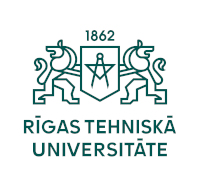
Riga Technical University is a modern internationally recognized university. It is the only polytechnic university in Latvia and the largest university in the country – it educates and trains almost 15 thousand students.
RTU is focused on becoming a third generation university that not only provides high quality education, but also conducts advanced research and ensures innovation and technology transfer, practically implementing scientific discoveries. In the faculties of RTU it is possible to obtain high quality education not only in engineering, but also in social sciences and humanities.
Study programs implemented by RTU have been positively evaluated by international experts and are officially accredited. RTU is constantly developing its infrastructure by constructing a campus on Ķīpsala Island. On completion, the campus will be the most advanced engineering study centre in the Baltic Region.
Dublin City University, Ireland.
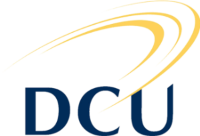
Dublin City University was founded in 1981 and comprises over 16,000 students including over 2600
postgraduate students, of whom c. 800 are research students. Following the incorporation in 2016 of leading colleges of
education (St Patrick’s College, Drumcondra; Mater Dei Institute of Education; Church of Ireland College of Education) into
the University, the number of DCU staff members increased from 400 to over 650. The University is now a multi-campus
university occupying approximately 60 hectares just north of Dublin City Centre.
Having grown its student population by more than 50% in the past five years, DCU is Ireland’s most innovative university
and fastest growing university, and in 2016 it delivered more than 200 programmes across its five faculties – Humanities
and Social Sciences, Science and Health, Engineering and Computing, DCU Business School and DCU Institute of
Education.
Excellence in DCU education and research activities has led to its ranking in the top of 1.5% of universities in the world. The
University is consistently ranked among the top young universities globally, appearing in the 2020 QS Top 70 under 50, and
2019 Times Higher (THE) Top 100 under 50. DCU has twice been named Sunday Times ‘University of the Year’ (2004,
2010).
The 2017 QS World University Rankings by Subject feature DCU in the top 250 of more than 4,438 universities worldwide
in the areas of Communications and Media Studies, Business and Management Studies and Modern Languages. DCU is
also now ranked in the top 300 universities in the world for both ‘arts and humanities’ and ‘social sciences’. The 2018 Times
Higher Education World University Rankings placed DCU amongst the top 300 universities in the world in the area of Life
Sciences.
Competitively won research funding is approximately €38 million per annum, and DCU invests considerable amounts of its
resources to develop research infrastructure and support key programmes.
University of Kragujevac, Serbia.
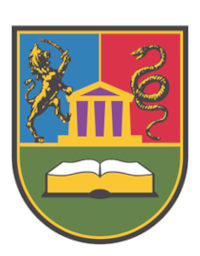
The University of Kragujevac rose from the foundations of the Lyceum of the Principality of Serbia, the first higher education
institution in modern Serbia, established in Kragujevac by the decree of Prince Milos Obrenović on July 1st, 1838. Today
University of Kragujevac is a modern higher education institution, with a student population of app. 20,000 and 1,200
academic staff, embracing almost all major areas of teaching and research and offering a wide range of accredited study
programs at Bachelor, Master and PhD levels at 12 faculties in six towns of the Central Serbia region: Kragujevac, Čačak,
Jagodina, Kraljevo, Užice, and Vrnjačka Banja. In addition, a member of the university is a newly established Institute for
Information Technology. Besides, the University comprises the following centres: Center for bioengineering, Center for
Information Technologies, University Centre for Career Development and Student Counselling; University Information
Centre; Lifelong Learning Centre; Joint Centre for Scientific Research of Serbian Academy of Sciences and Arts and the
University of Kragujevac; Collaborative Training Centre, Knowledge Transfer Centre and Creativity Centre. International
cooperation as a priority activity of the University of Kragujevac and an integral part of the strategy of internationalization of
the University is focused on the establishment and development of cooperation with foreign universities and international
organizations dealing with higher education and expanding the network of inter-signing cooperation agreements with new
partners abroad, as well as renewing contracts with existing partners. Faculty of Engineering and Faculty of Medical
Sciences are high-reputable units of the University of Kragujevac providing research for academia and healthcare industry
needs in various areas of Biomedical Engineering. The University is involved in the following programs: ERASMUS+,
SCOPES, COST and HORIZON 2020.
The University of Kragujevac is a generator and driver of innovations in the field of education and research which through
internationalization encourages the synergy of all University members, giving a strong contribution to the strengthening and
improvement of the University’s reputation in the country and abroad.
The University of Kragujevac is a partner recognized by international higher education and research institutions, with the
highest academic standards which provide students, teachers, and researchers with the opportunity to acquire general,
scientific, and artistic knowledge and skills in compliance with the needs of the society and planned regional and national
development that through scientific and creative process provides the advancement of society at large.
By realizing international activities, the University will strive to provide its teachers and researchers with the most favorable
research environment, and its students with opportunities to gain knowledge, skills, and competences that will raise their
competitiveness not only at the national level, but also at European and global labor market, and within the academic
community at the same time.
Through cooperation among faculties within the University, their students, teachers, researchers, and administrative staff in
the area of international cooperation, the University of Kragujevac tends to provide the best conditions, mechanisms, and
procedures that will encourage and support the realization of activities necessary for the process of internationalization.
G.M EUROCY Innovations LTD, Cyprus.

EUROCY Innovations Ltd (EUROCY)
is an IT Engineering and Consulting company founded in 2008 in Cyprus. The company comprises a team of 5
passionate engineers and other professionals aiming at contributing to the social e-inclusion and innovation in Europe, with
high quality products and services offered both to private and public sector. Our team has a broad expertise, covering the
design and development of state-of-the-art Web-based cyber-physical systems solutions, the study of application fields and
the analysis of business requirements, the design of systems and processes for the effective adoption and integration of
new technology, the use of artificial intelligence and machine learning in improving the interaction of human users with the
environment, the design of games for the playful training of professionals in their working environments, etc. Our driving
policy is to build a society developed enough to accommodate the needs of all people.
EUROCY team has strong and diverse experience and expertise. Dr George Milis has more than 16 years of experience in
managing large-scale projects in ICT, vocational training, entrepreneurship and consulting services. Mrs Marianna
Gregoriou has been acting as an advisor to young people and adults in relation with training, employment and assistive
technologies and practices for many years. She is also an accredited trainer by the Cyprus Personnel Development
Authority. Moreover, EUROCY has an active role in European and National research and innovation, to advance the inhouse
knowledge and services’ portfolio, create strong partnerships, towards the provision of next generation and state-ofart
services to its customers. Through the company activities in the Education domain and participation in relevant EU and
National projects, we collaborate with other EU organisations and create intellectual property in digital educational games,
assistive technology, as well as training packages in innovative areas.
Moreover, we own intellectual property in a range of different educational/learning objects and we exploit these products
through our dedicated eLearning Management System, accessible here. There, we offer
train-the-trainers services in the areas of caregiving, supported employment for people with disabilities, effective adoption of
assistive technologies, etc.Our learning objects and training modules are also available for adoption in broader curricula by
established educational institutes in Cyprus and beyond.
EUROCY is also a leading expert in semantic technologies (artificial intelligence), Internet of Things, Interoperability; these
technologies have been exploited in the ViPi project for the development of a semantically enhanced repository of learning
objects - Web3.0 and in more recent commercial activities of the company.
Relevant services:
- Educational Games and assistive technology: Through our activities in the Education domain and our participation in
relevant EU and National projects, we collaborate with other EU organisations and create intellectual property in digital
educational games, assistive technology, as well as training packages in innovative areas.
- Education/Training services: We own intellectual property in a range of different educational/learning objects (see also list
of relevant EU-funded projects).
Collaborators:
EUROCY has long and strong collaboration with the GE Learning, private school for languages.